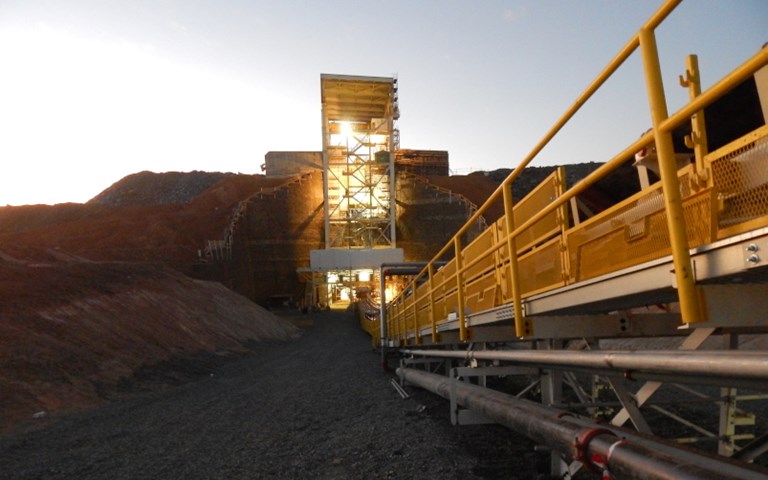The agreement will provide Kinross with a 30-year exploitation license for its Tasiast Sud exploration target in line with the country's latest mining code. Courtesy of Kinross Gold.
On June 15, Kinross Gold announced it had reached an in-principle partnership agreement with the government of Mauritania, providing the company with a 30-year exploitation license for its Tasiast Sud exploration target, granting it the possibility of early mining and allowing it to expedite the permitting process.
Once the agreement is completed, Kinross Gold will pay the Mauritanian government US$10 million to resolve disputes regarding fuel use and tax exemptions and an additional US$15 million to resolve disputes over the exploitation license for the mine. The government will repay Kinross approximately US$40 million in value-added tax refunds through 2025, effectively reinstating the company’s tax exemption on fuel duties.
Related: Export bans and tax code changes were some of the issues confronting miners in foreign jurisdictions
Under the agreement, Kinross will pay the Mauritanian government an escalating royalty on its Tasiast Sud mine, dependent on the price of gold, an increase from its previous fixed 3 per cent royalty. The company will pay royalties of 4 per cent when gold prices are below US$1,000 per ounce of gold and up to 6.5 per cent when gold prices meet or exceed US$1,800 per ounce of gold.
“We are pleased to see further development of a positive foreign investment climate in Mauritania with this successful outcome of our discussions with the Government, along with the [International Finance Corporation]-led Tasiast project financing signed in December 2019,” J. Paul Rollinson, president and CEO of Kinross Gold, said. “This balanced agreement will deliver increased stability, position Tasiast for long-term success, and provide enhanced benefits to Mauritania and its people.”
In September 2019, Kinross Gold announced it was moving forward with its US$150 million expansion of Tasiast, which is expected to increase throughput production to 24,000 tonnes per day, an increase over its current throughput of about 15,000 tonnes per day. The project is expected to reach this output by mid-2023 and increase the life of mine by four years until 2033. According to the company, the Tasiast 24k expansion project will include modifying the mine’s grinding cricuit, expanding leaching and thickening capacity and onsite power generation and water supplies.
“This agreement is a result of positive efforts between the government of Mauritania and Kinross to amicably resolve our discussions,” Mauritanian Minister of Petroleum, Mines and Energy Mohamed Abdel Vetah said. “It also highlights our commitment to providing an attractive investment climate in the country and ensures that the Mauritanian people will receive the appropriate benefits from the Tasiast mine.”



